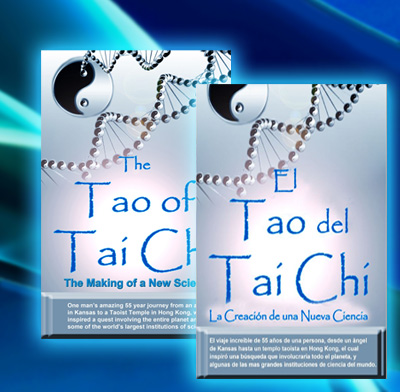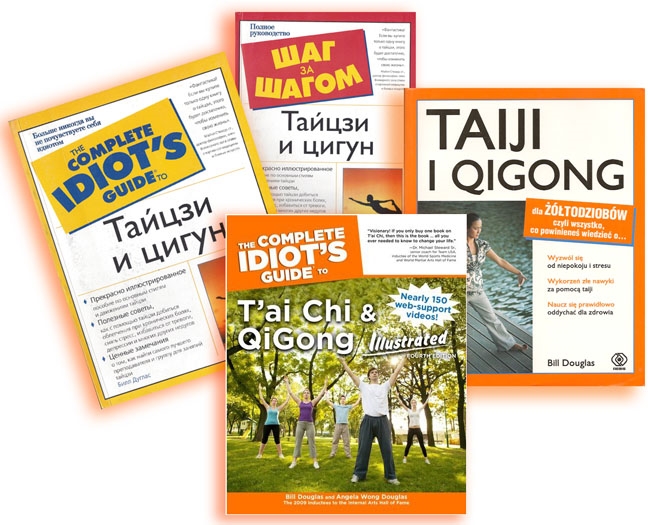slowing aging benefits of Tai Chi & qigong
Can Tai Chi Really Slow Aging? A New Study Has The Answer
A new study published in Cell
Transplantation found that Tai Chi can help raise the numbers
of a stem cell — CD34 cells — important to a number of the
body’s functions and structures ... The new study found that
those who practiced Tai Chi enjoyed a significantly higher
number of CD34 cells than those in the other groups.
--
HuffPost, 2014 Read entire article
A new study suggests the traditional
Chinese martial art and sport called tai chi may replenish
stem cells ...
In a group of young people, investigators
compared tai chi with brisk walking or no exercise and found
that the group performing tai chi saw an increase in a type of
stem cell ...
--
PsychCentral.com, 2018 Read entire article
WHAT ARE STEM CELLS?
Stem cells hold
enormous promise for cell-replacement therapies or tissue
repair in many age-related degenerative disorders, such as
diabetes, stroke, heart disease and Parkinson's disease. In
the context of time and ageing, stem-cell research is
important ...
-- NIH, 2005 Read
entire article
Anti-Aging Benefits of Qigong ...
The
main conclusion from many studies is that qigong exercise
helps the body to heal itself. In this sense, qigong is a
natural anti-aging medicine.
-- Qigong Institute Click to read more
Qigong exercise increases the level of
testosterone in blood and physical power of sportsmen
--
Physical Education College, Guangzhou, China
Read entire article at Qigong Institute
Effects of Tai Chi Training on Antioxidant
Capacity in Pre- and Postmenopausal Women
The 8-week design
TC training (2 sessions in class; 2 sessions at home,
1-1:15/session) is beneficial on functional balance,
flexibility and muscular strength ... rotational movements of
TC postures with slow and deep breathing increased erythrocyte
GPx activity and reduced tHcy concentrations, in both pre- and
postmenopausal women. Tai Chi would be a good physical
activity design for aged women in order to increase their
antioxidant protection ...
-- NIH, 2011
Read entire study
... findings from this cross-sectional study suggest that experienced Tai Chi practitioners may function better than older controls in daily activities that require eye-hand coordination
-- Hiindawi Journal Read entire article
Growth hormone (GH) and
dehydroepiandrosterone sulfate (DHEAS) secretion decline with
advancing age and are associated with the symptoms of aging.
... from the findings of the present study and from the above
elaborate discussion, it can be concluded that combined
approach of yoga (Kriya, Suryanamaskara, Asana, Pranayama, and
Meditation) significantly increases the basal level of GH and
DHEAS in the blood, thus contributing in promoting healthy
aging.
--
NIH, 2014 Read study
Anti-aging medicine can repel Father Time
Chan explained that stress leads to the release of harmful
hormones, such as cortisol, that break down the body. Anxiety
also interferes with the production of beneficial hormones,
which are already in decline as people reach their mid-40s.
Tai chi counteracts this by calming the mind, slowing the
release of stress-related hormones.
-- Straight.com, 2009
http://www.straight.com/article-199686/antiaging-medicine-can-repel-father-time
AGING, slowing the aging process. Research at Baylor Medical School has found that some cells from the bodies of long-term QiGong practitioners live five times longer than the same cells from ordinary test subjects.
Other research from The Shanghai
Institute of Hypertension looked at several aspects of aging.
They determined that QiGong is an effective measure in
preventing and treating geriatric diseases and delaying the
aging process.
Government Issues New Physical Activity
Guidelines
Older adults – Keep exercising like other adults
as long
as you can sustain that level of exercise. If you
have
a history of falls or have balance concerns,
include exercises like tai chi . . .
http://www.health.gov/paguidelines/guidelines/default.aspx
The two studies are the first involving
Tai Chi to be reported by scientists in a special frailty
reduction program sponsored by the National Institute on Aging
(NIA).
In the first study, Steven L. Wolf, Ph.D., and
colleagues at the Emory University School of Medicine,
Atlanta, Ga., found that older people taking part in a 15-week
Tai Chi program reduced their risk of falling by 47.5 percent.
A second study, by Leslie Wolfson, M.D., and colleagues at the
University of Connecticut Health Center, Farmington, found
that several interventions to improve balance and strength
among older people were effective. These improvements,
particularly in strength, were preserved over a 6-month period
while participants did Tai Chi exercises..
-- NIH, National
Institutes on Aging
FIND MUCH MORE RESEARCH AT
THE "QIGONG INSTITUTE DATABASE"
Since 1984,
collecting breaking medical/science research on Qigong, Tai
Chi, Yoga, and Mind-Body Education
Click here
for Qigong Institute Database...
* NOTE: World Tai Chi & Qigong Day advises
consulting your physician before beginning any new exercise,
herbal, diet, or health program. The research listed here is
meant to stimulate a discussion between you and your
physician, health insurance carrier, etc., not as medical
advise. Research and comments provided here are hoped to
stimulate a more robust discussion of powerful natural
mind/body health tools. Popular media, health media, and
government must increase attention to stunning emerging
research, including the UCLA study indicating Tai Chi
participants enjoyed a 50% increase in immune system
resistance to viral infection.
- To learn more about tai chi & qigong medical research,
see the below book,
"the complete idiot's guide to tai chi & qigong,", and also
"Harvard Medical School Guide to Tai Chi," and
"The way of qigong: the art and science of chinese energy healing."
Click to purchase this acclaimed best-selling Tai Chi book, with nearly 150 web-video support videos for the detailed text/illustration instruction as a "gift of health" for loved ones.
A new paradigm in multi-media educational books.
"Visionary! If you only buy one book on T'ai Chi, then this
is the book. This book is all you ever needed to know to
change your life. I have taught T'ai Chi for several decades
myself, yet I have now read Bill's book from cover to cover
seven times, and still get something new from it each time."
– Dr. Michael Steward Sr., D.MA, Ph.D., MA, Senior
Coach for Team USA, Inductee of the World Sports Medicine and
World Martial Arts Hall of Fame
"Sometimes Chinese
culture can be difficult to explain. Sifu Bill Douglas
successfully uses American culture to explain the art of T'ai
Chi Chuan. He simplifies difficult concepts, making them
easier to understand. This book takes the best parts of T'ai
Chi and makes them understandable [to Westerners] without
requiring a grounding in Chinese culture and history."
– Sifu Yijiao Hong, USA All-Tai Chi Grand Champion and USA
Team member; Certified International Coach and Judge,
International Wushu Federation
"Douglas has
achieved for QiGong what Apple did for the computer. He's
brought it to the people … great place to start for beginners.
… Teachers may also find this an excellent manual 'on how to
explain these concepts to the general public…'"
– R.
Poccia,
"The Tao of Tai Chi: The Making of a New Science" (now available in both English and Spanish))

Harvard Medical School Researchers Launch Tai Chi as Therapy Lecture to Commemorate World Tai Chi Day
The new Harvard Medical School Guide to Tai Chi is a powerful
reference book for all tai chi and qigong advocates, teachers,
etc. The Harvard Guide cites WorldTaiChiDay.org's work in
expanding global awareness of tai chi and qigong!
Our
efforts have exposed over ONE BILLION potential viewers/readers
of mass media to Tai Chi and Qigong and its myriad health
benefits, via our annual WTCQD worldwide events.
